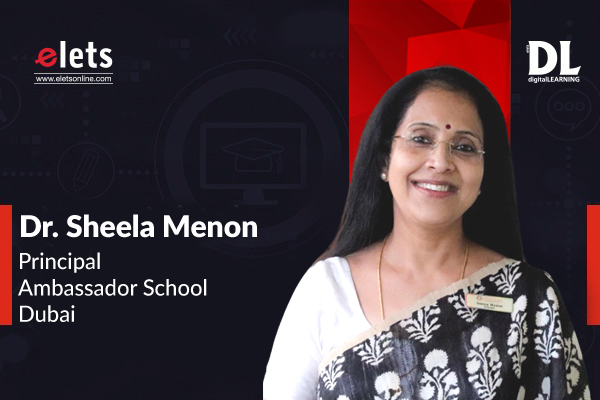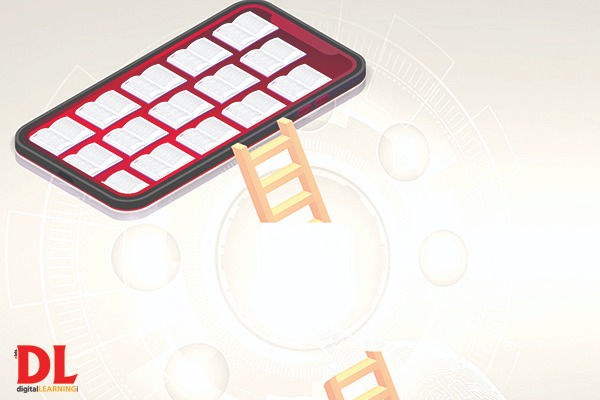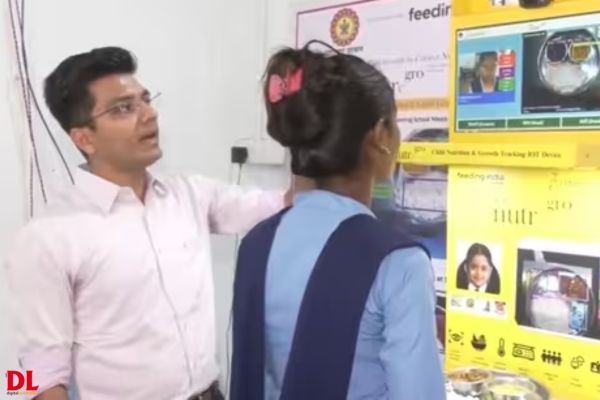The 2020 pandemic just added additional numbers to already increasing school dropouts in many parts of the world. Other than geographic disparities and economic constraints in many countries, there are many more reasons behind this rising concern, especially when we see a growing gender disparity in the number of out-of school children, shared Dr Sheela Menon, Principal, Ambassador School, Dubai in an exclusive conversation with Sheeba Chauhan of Elets News Network. Edited excerpts:
According to UNICEF, Over 600 million children and adolescents worldwide are unable to attain minimum proficiency levels in reading and mathematics. What do you consider the issue in developing foundational skills in literacy and numeracy?
Despite a conscious boost to raise literacy rates in most of the economies worldwide, especially in the MDCs (More Developed Countries) and LDCs (Less Developed Countries) the educators have observed a gap in their learning skills and proficiency levels. Our day-to-day observation as educators raises many a concern and questions behind this gap. Besides poverty which is a major factor, children living in countries facing political disturbances, economic instability, war /conflict zones, and natural calamities often are left with widening lacunae in basic schooling skills. The most likely reasons behind such low proficiency levels are:
Lack of experienced and trained teachers: Though schools are absolutely affirmed in their process of selection only for trained teachers, often are bereft of finding the right talent which thus impacts poor skill development in our early learning group of students. A teacher who has studied the English language would know best how to develop phonemic and phonologic awareness, vocabulary build-up, pronunciation, and grammatical skills, rather than someone who is not from the same subject background. The same is seen with numeracy skills. Teachers need constant self enriching exercises in their subject knowledge and proficiency levels in teaching. CPDs are extremely important tools to help teachers discover newer methods of classroom exchanges and interaction which help in raising skills in students.
Digital preoccupation is a deterrent to developing foundational skills and proficiency levels: Perhaps digitalisation of education has its flip side when we see the decreasing percentage of young readers these days. In the face of the digital preoccupation of our children with video games and other pastimes, reading is found to be a waning passion today.
Lack of infrastructure, inadequate learning material and resources act as a great hindrance in raising the percentage of able learners and in perfecting their skills. Many schools are not equipped with the basic level of infrastructure. In 21st century schools, apart from classroom resources and library, internet connection and digital support to teachers and students are important for a smoother transaction of lessons and faster learning of the many areas of language and numeracy skills.
Foundational skills require clear instructions to students, and it is absolutely essential to understand that proficiency in foundational skills comprising of reading, writing, speaking and listening, helps our learners to get a better grip on numeracy and a host of other skills required in handling various subjects.
Some two-thirds of the world’s school-aged children do not have an internet connection in their homes. Do you think the digital divide can be a major drawback of the digitization of education?
The focus on digitalization of education and its necessity was felt the most during the Covid 19 Pandemic years when the world over, onsite learning at schools came to a halt. Digital technology helped in the continuity of learning at all levels in students of all age groups through virtual classrooms. From completely off-site to hybrid learning and now back to normalcy, academicians and educators evolved in their latest skill, establishing the fact that learning never stops if essential tools are made available. The use of technology and digital skills and applications are here to stay, and perhaps will increase more so in times ahead.
The concerning question today is if lack of technology or absence of digital skills could prove to be detrimental for our students at school levels. It is to be noted that every school today is not blessed with the same levels of infrastructure, now deemed as most important for greater efficacy in the teaching-learning process.
- Several less developed countries still are not well equipped with high-speed internet connections at home and at schools.
- Affordability, accessibility and availability of digital technology if found a challenge to school, could mean lesser skill development in the students and a growing disparity between technology-savvy students and those without. This could further limit opportunities for the students in academics and professional life ahead.
- There could be a growing inequality among economies leading to further socio-political challenges.
Equitable access to learning opportunities and improved skills development in primary education ensures a better future. Do you think catering to primary education mindfully can transform the education ecosystem?
The right to education is a fundamental right provided by most developed countries and growing economies. For many nations, elementary and free education is a mandatory component of social wellbeing of children up to an age of 14 years.
- Primary education plays a pivotal role for both the individual and society. With an effective and wholesome curriculum, primary education builds a strong foundation which opens many future opportunities for self-growth and sustainability, as well as in poverty eradication and fostering positive social changes.
- Primary education is the strongest pillar on which a student’s academic career builds up and which in turn helps the student to further his/her dreams in professional career and in life ahead. Foundational skills in literacy and numeracy are the two strongest bases built at this time which then goes on to provide support in all other subjects and areas of interest in students.
- A school’s primary wing is a world of its own where a child steps in for the first time away from the secured home to know the world outside of his known ecosystem. This is where she/he learns to find the keys to open doors to a future of respectable, independent, self-sustaining and fulfilling life. Primary education is the first point of a journey ahead where necessary skill building shapes up a student’s personality, ethics and values and initiates all the essential requirements in terms of lifelong practices and discipline which further has a deeper role in writing success stories for a student.
- A nation, a society filled with students armed with the foundational skills instilled in them in their early year’s education is sure to prosper with skilled human resources.
- Last but not the least, a strong primary education integrating the changing requirements of the current generation given by a school builds up a very holistic education ecosystem which continues to grow richer, and healthier in the following stages as a chain reaction. Students honed with necessary foundational skills from primary years take on the next stage of skills easier and faster, as observed by the teachers in successive phases of school education.
244 million children and youth are out of school globally, of which 118.5 million are girls. Apart from the several other concern, this is the major concern seen in school-going students. Your comments on the same.
The 2020 pandemic just added additional numbers to already increasing school dropouts in many parts of the world. Other than geographic disparities and economic constraints in many countries, there are many more reasons behind this rising concern, especially when we see a growing gender disparity in the number of out-of-school children.
- School dropouts are very high in conflict-prone regions of the world, as in war-stricken, unstable governments, civil wars or even in nations battling with the economic crisis.
- Lack of accessibility and affordability in school education is one of the major reasons for many children kept away from schools. Either education is expensive or not available everywhere or for everyone.
- Students of determination and special needs are not given access to all schools in many parts of the world. Inclusive education is still an unknown territory in many countries leaving behind a growing gap.
- Gender bias and discrimination have cost the education rights of girls in many societies. Lack of infrastructure, societal expectations, cultural practices and beliefs, have led to fewer girls continuing with their education. Flouting laws on marriage and motherhood have led minors into marriage and early motherhood and thereby ending their need for education.
- In many developing economies, children are used as workforce despite a law against the exploitation of children and child labour. Government’s inability to stop such practices or the lack of will towards the execution and implementation of the laws have harmed the education rights of our children. Often more than lack of resources, governments have been found to be negligent, lacking in purposeful reforms or shying away from investing in the education sector, thus leading to decreasing numbers of school-going students.
World Education Summit 2023 in Dubai aims to unlock fresh strategies and foster new approaches to build a future-ready education ecosystem. How do you think such conferences help to uplift education standards at a global level?
Meeting people from the same industry but from different places of the world always is a route towards positive changes and growth. Knowing some of the best minds and learning and sharing with each other helps to find solutions to some of the raging concerns which are a global phenomena.
Rich experiences, shared ideas and perspectives help in strategizing better plans to boost the education ecosystem which will eventually lead to collective benefits for the younger generation. Interactions and exchanges open newer avenues for networking for greater and better-shared practices, sharing concerns and finding solutions.
Knowing about the latest global trends in education as in policies, new methodologies of teaching, newer tools and applications, assessment routes and outcomes, latest methods of data interpretation, etc.
Last but not least such summits give us a deeper reflection of our own practices and where we stand, a higher means of self reflection as we compare with global standards.


























